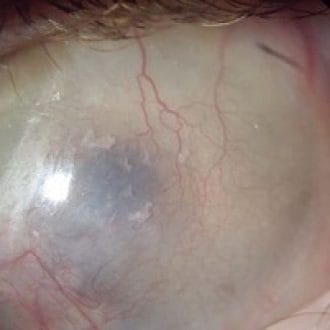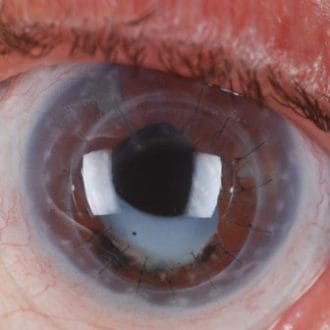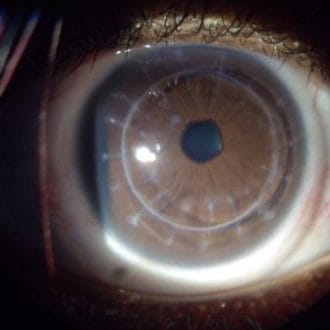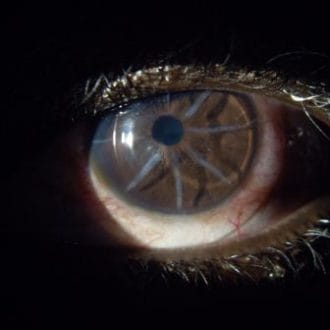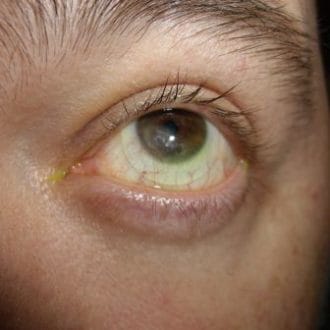7800 SW 87 AVE SUITE B-270 MIAMI, FLORIDA 33173
Contact Us
- Home
- Scleral Lenses
Scleral Lenses
Scleral Lenses: A Comprehensive Guide to Advanced Vision Correction
Scleral lenses have revolutionized the field of optometry, offering superior comfort and vision correction to individuals with a variety of ocular conditions. This guide delves into the world of scleral lenses, providing an in-depth understanding of their function, benefits, fitting process, and much more.
Understanding Scleral Lenses
Scleral lenses are large-diameter gas permeable contact lenses that rest on the sclera – the white part of the eye – and vault over the entire corneal surface. This design differentiates them from standard contact lenses, which rest on the cornea.
The unique design of scleral lenses offers numerous advantages. First, their size provides stability, reducing the risk of dislodgement. The vaulting creates a tear-filled reservoir that provides constant hydration to the eye’s surface, ensuring optimal comfort. Furthermore, their design allows for the correction of a variety of complex corneal irregularities, offering excellent visual acuity.
Why Choose Scleral Lenses?
Scleral lenses can transform the lives of individuals dealing with various ocular conditions that impair visual function and comfort. Some of these conditions include:
Keratoconus: A condition causing the cornea to thin and bulge into a cone-like shape, leading to blurred vision. The unique design of scleral lenses allows them to vault over the irregular cornea, providing a smooth refractive surface for improved vision.
Post-surgical complications: After procedures such as LASIK or corneal transplants, the cornea may have an irregular shape. Scleral lenses can aid in correcting the resulting refractive errors.
Severe Dry Eye Syndrome: The tear reservoir beneath scleral lenses provides continuous hydration to the eye’s surface, alleviating dry eye symptoms.
High refractive errors: Individuals with high levels of myopia (nearsightedness), hyperopia (farsightedness), or astigmatism may find superior vision correction with scleral lenses.
The Fitting Process
Fitting scleral lenses is a highly specialized process requiring expertise and advanced technology. It involves several steps:
Initial Examination: Dr. Boshnick begins with a comprehensive eye examination to assess the overall health of your eyes and determine if you’re a suitable candidate for scleral lenses.
Corneal Topography: This process maps the surface of your cornea, highlighting its curvature and any irregularities. This map guides the lens fitting process.
Lens Selection and Fitting: Based on the examination and corneal topography, a trial lens is selected. Once applied, the fit is assessed using a biomicroscope.
Lens Customization: If necessary, the lens parameters are adjusted to achieve the optimal fit, comfort, and vision correction.
Lens Education: Dr. Boshnick and his team will instruct you on proper lens care, application, and removal.
Follow-up Visits: Regular follow-up visits are scheduled to monitor your eye health and ensure ongoing comfort and optimal vision correction.
Caring for Scleral Lenses
Proper care and maintenance are critical to the longevity of your scleral lenses and the health of your eyes. This includes correct cleaning and disinfection, proper storage, and regular replacement of your lens case. Dr. Boshnick will provide detailed instructions regarding scleral lens care.
The Transformation with Scleral Lenses
Scleral lenses can be a life-changing solution for individuals who have struggled with other forms of vision correction. With their ability to correct complex corneal irregularities, provide superior comfort, and offer sharp visual acuity, they’ve provided many patients with a new lease on life.
People with conditions that cause discomfort, such as chronic dry eye or post-surgical complications, can enjoy relief from symptoms due to the moisture-filled environment the scleral lenses create. Additionally, the potential for improved vision quality can significantly impact everyday tasks, from reading and computer work to driving and participating in sports.
In some cases, patients with advanced keratoconus or severe corneal scarring, previously deemed unsuitable for contact lenses, have been able to achieve excellent vision correction with scleral lenses. The transformative power of these lenses extends beyond vision enhancement, often contributing to an improved quality of life.
Scleral Lenses and Advanced Technologies
Dr. Boshnick utilizes state-of-the-art technology to ensure a precise fit and optimal performance of your scleral lenses. High-tech tools such as advanced digital retinal imaging and computerized corneal topography provide a wealth of information about your eye’s structure and health. The EyePrint Pro technology, for example, is used to design scleral lenses that match the exact contours of your eye. These technological advancements play a vital role in the customization and effectiveness of scleral lenses.
The Future of Scleral Lenses
The field of scleral lenses continues to evolve, with new designs and materials enhancing their performance and comfort. Research is underway to further improve the oxygen permeability of the lenses, making them even more comfortable for prolonged wear. Innovations are also being explored to integrate medication delivery systems within the lenses, which could revolutionize the treatment of various ocular conditions.
Conclusion
In the realm of vision correction, scleral lenses are a game-changer. They have opened up new possibilities for individuals with complex ocular conditions, providing a level of comfort and visual acuity previously unattainable. Under the care of Dr. Boshnick and his team, patients can rest assured that they are receiving the best possible care and treatment. Scleral lenses offer more than just clear vision; they provide a pathway to a better quality of life. Embrace the transformative power of scleral lenses and discover the world of possibilities they open up.
In conclusion, scleral lenses have marked a significant advancement in the field of optometry. With their unique design and multiple benefits, they have proven to be an exceptional solution for individuals with a variety of complex ocular conditions. With the guidance and expertise of Dr. Boshnick, scleral lenses can pave the way towards improved vision and enhanced quality of life.
Your Vision, Our Priority:
Schedule Your Consultation Now
Frequently Asked Questions
Scleral lenses are a type of gas permeable contact lens that rests on the sclera (the white part of the eye) and creates a tear-filled vault over the cornea. This design allows the lens to provide a smooth optical surface that corrects irregularities caused by conditions such as keratoconus, post-LASIK complications, and other corneal irregularities.
Schedule Your Consultation with
Dr. Boshnick
-
-
-
7800 Sw 87 Ave Suite B-270
Miami, Florida 33173

